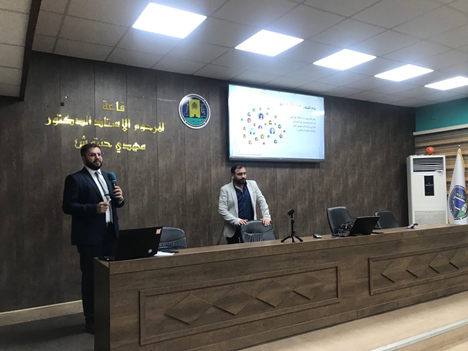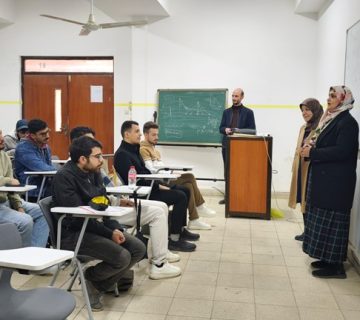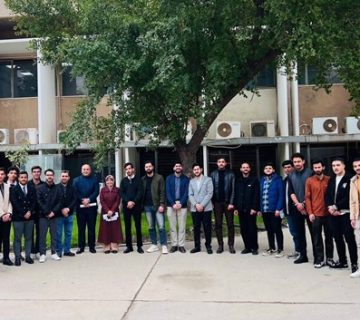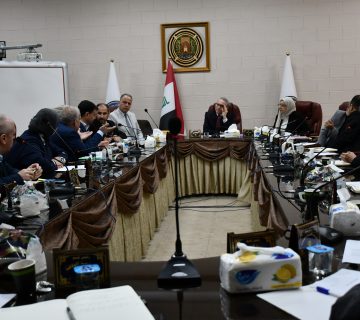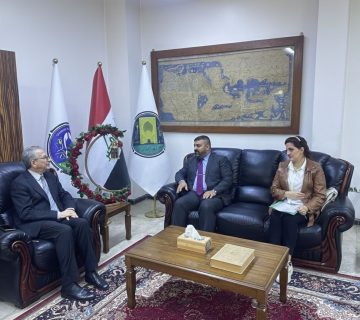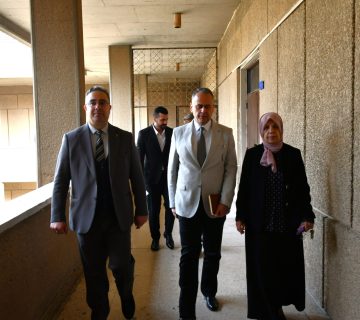The College of Engineering, University of Baghdad / holds a workshop entitled:
Labor market requirements and how to prepare for after graduation.
The Computer Engineering Department at the University of Baghdad, in cooperation with the Continuing Education Center and the Qualification, Employment and Follow-up Unit at the College of Engineering, held a workshop entitled:
“Labor market requirements and how to prepare for after graduation.”
It was delivered by the assistant Lecturer, Al-Harith Muthanna Bashir, and the assistant Lecturer, Raafat Saleh Muhammad, on Monday, 5/13/2024, in the hall of Professor Dr. Mahdi Hantoush in the College of Engineering/Baghdad University, in the presence of a number of teachers and students. The workshop included the following topics:
1- A description of the modern labor market and identification of market needs
2- How institutions work and what is institutional culture
3- A description of the current graduate’s condition and the difficulties he faces
4-How to develop the technical skills of graduates and their importance
5-How to develop the personal skills of graduates and their importance
6- Weakness of the English language among students
7- The necessity of continuous monitoring of the labor market and matching it with the educational materials for students in principle.
The aim of the workshop was to focus on the graduates’ weaknesses and present appropriate methods for solving them, as well as clarifying the importance of the personal aspect in private work in addition to the technical aspect and the importance of professional and scientific guidance and advice in establishing projects and clarifying the needs of the labor market. The workshop came out with a number of recommendations, the most important of which are:
1- It is necessary to follow up on the fourth stage until and after they graduate and provide advice and counsel to them in this field
2- Working on a special platform to follow up on graduates and communicate with them to schedule meetings and workshops of interest for new graduates.
3- Forming coordination committees with private sector companies for the purposes of summer training for third stage students.
4- Trying to transfer the requirements of the labor market through committees in institutions and companies so that the student can be trained in them before he graduates.

